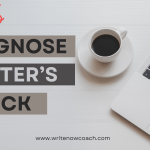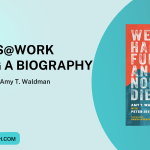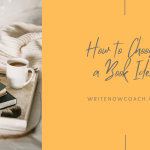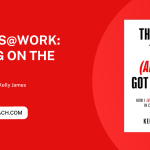Create Your Nonfiction Book Quickly and Easily
January 19, 2021
Note From Rochelle
Dear Writers,
Is writing a book on your bucket list?
It may be easier than you think.
If you’ve kept a blog, written a newsletter, or taught a multiple-week class—you might have enough content to create a book. Today’s article teaches you the types of books that you can create from existing content.
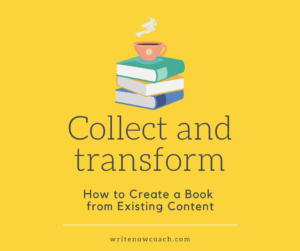 And on January 28, I’ll be teaching a class on how to transform your pieces of content into a book you can sell. If you’re interested in learning more, check out the workshop on my website: Collect and Transform: How to Create a Book from Existing Content.
And on January 28, I’ll be teaching a class on how to transform your pieces of content into a book you can sell. If you’re interested in learning more, check out the workshop on my website: Collect and Transform: How to Create a Book from Existing Content.
Enjoy!
Rochelle

Create Your Nonfiction Book Quickly and Easily
by Rochelle Melander
Take a moment to imagine with me.
How would your life be different if you could add “author” to your list of accomplishments?
How would your life change if you could tell potential clients that you’d written a book?
Would you feel better about yourself? Land more speaking gigs? Make more money?
I’ll be honest with you, I have not become rich from selling my books.
But writing books has given me more confidence. It’s helped me to reach more clients and speak at bigger conferences. And, of course, successfully writing and publishing books has led to publishing more books.
Let’s say you want to jump on this train—and write your own book. Where do you start?
Here’s a little secret: you may have the beginnings of a great book sitting on your computer.
Yup.
If you’ve been a regular blogger, speaker, or workshop leader, you’ve no doubt created some of the content you need for a book. All you have to do is assemble and polish it.
In this article, I’ll talk about 4 types of books that you can easily assemble from existing content.
The Collection Book
A collection book gathers essays, interviews, newsletter articles, or other short pieces of content and groups it around a theme like overcoming fear or living a creative life.
Because the content of a book of essays can be wildly funny, deeply serious, literary, political, religious, and so much more, it’s a great format for many entrepreneurs. And because it collects together short pieces, it’s a good format for repurposing existing content. In fact, these books often start as blog posts or magazine columns that become popular and get transformed into a book.
Examples:
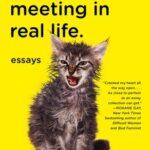 We are Never Meeting in Real Life by Samantha Irby
We are Never Meeting in Real Life by Samantha Irby
The hilarious and irreverent Samantha Irby has blogged since 2009. Her unique voice works in the short essay, and she’s released three collections of them.
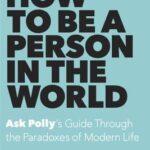 How to Be a Person in the World: Ask Polly’s Guide Through the Paradoxes of Modern Life by Heather Havrilesky includes a mix of new essays and favorite answers from the author’s “Ask Polly” column in New York magazine’s, “The Cut.”
How to Be a Person in the World: Ask Polly’s Guide Through the Paradoxes of Modern Life by Heather Havrilesky includes a mix of new essays and favorite answers from the author’s “Ask Polly” column in New York magazine’s, “The Cut.”
Collect this content: blog posts, newsletter articles, or podcast episodes
Action step: Review what you’ve written in your blog, newsletter, or what you’ve talked about in a podcast, and look for themes that might work well as a collection book.
A How-To Book
The How-To Book teaches readers how to accomplish a task (lose weight), solve a problem (overcome the fear of speaking) or understand and apply information (wine and food pairing).
Examples:
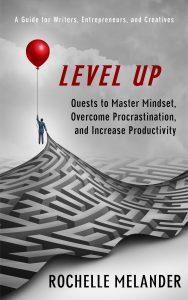 Level Up: Quests to Master Mindset, Overcome Procrastination and Increase Productivity. My book started as a series of blog posts. Because I wanted this to be a how-to-book that used game theory to help people achieve their goals, I turned every single post into a Quest. I added additional content to help readers conquer their fears, stop procrastinating, and get more done.
Level Up: Quests to Master Mindset, Overcome Procrastination and Increase Productivity. My book started as a series of blog posts. Because I wanted this to be a how-to-book that used game theory to help people achieve their goals, I turned every single post into a Quest. I added additional content to help readers conquer their fears, stop procrastinating, and get more done.
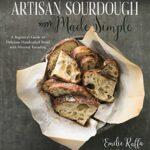 Artisan Sourdough Made Simple: A Beginner’s Guide to Delicious Handcrafted Bread with Minimal Kneading by Emilie Raffa started as posts on her blog, The Clever Carrot.
Artisan Sourdough Made Simple: A Beginner’s Guide to Delicious Handcrafted Bread with Minimal Kneading by Emilie Raffa started as posts on her blog, The Clever Carrot.
Type of content: home study course, class, or workshop
Action step: What do you teach people how to do? Do you have a workshop, class, or program that you have taught that could be easily turned into a book?
A Big Idea Book
The Big Idea book presents a single important idea in a compelling way. While the book may include action steps, it is not a how-to book. The tiny pieces of the book—chapters, paragraphs, exercises, call outs, and sidebars— support or prove the main idea.
Popular examples:
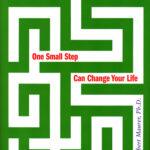 One Small Step Can Change Your Life: The Kaizen Way by Robert Maurer. The big idea: taking small steps bypasses the fear part of our brain and allows us to take action and achieve our goals. The book tells stories to support how this works in real life.
One Small Step Can Change Your Life: The Kaizen Way by Robert Maurer. The big idea: taking small steps bypasses the fear part of our brain and allows us to take action and achieve our goals. The book tells stories to support how this works in real life.
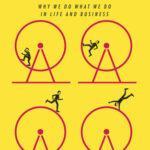 The Power of Habit: Why We Do What We Do In Life and Business by Charles Duhigg. This book presents stories that support the idea that habit is the key to exercising regularly, being more productive, and succeeding. The key principle is the habit loop: Cue, Practice, Reward.
The Power of Habit: Why We Do What We Do In Life and Business by Charles Duhigg. This book presents stories that support the idea that habit is the key to exercising regularly, being more productive, and succeeding. The key principle is the habit loop: Cue, Practice, Reward.
Type of content: speech, class, or a long blog post
Action step: Do you have a big idea that has transformed the way you approach your business or life? Do you have evidence that your idea works? Why not turn that idea into a book that shows the reader how to use your idea to make a mindset shift in their work or life?
Your Turn
What have you written that you’d like to turn into a book?
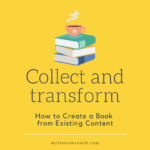 In my class, Collect and Transform: How to Create a Book from Existing Content, I will share with you my process for taking your content and transforming it into a book you can sell. I will talk about how to evaluate your market and choose a topic, more book structures that work, and how to craft a finished product.
In my class, Collect and Transform: How to Create a Book from Existing Content, I will share with you my process for taking your content and transforming it into a book you can sell. I will talk about how to evaluate your market and choose a topic, more book structures that work, and how to craft a finished product.
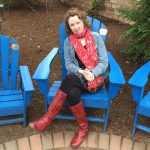 Write Now! Coach Rochelle Melander is a certified professional coach, experienced publishing strategist, and the author of eleven books, including Level Up: Quests to Master Mindset, Overcome Procrastination and Increase Productivity. She helps people write and publish books that transform lives. She’s the founder of Dream Keepers, a writing workshop that supports children and teens in finding their voice and sharing their stories.
Write Now! Coach Rochelle Melander is a certified professional coach, experienced publishing strategist, and the author of eleven books, including Level Up: Quests to Master Mindset, Overcome Procrastination and Increase Productivity. She helps people write and publish books that transform lives. She’s the founder of Dream Keepers, a writing workshop that supports children and teens in finding their voice and sharing their stories.



